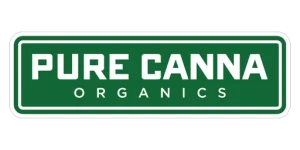How to Get a CBD License in NJ
The CBD market in New Jersey is growing rapidly, but it’s heavily regulated. If you plan to sell, manufacture, or distribute CBD products in the state, understanding the licensing process is essential.
This guide explains how to get a CBD license in NJ, following principles of Experience, Expertise, Authoritativeness, and Trustworthiness (EEAT). Whether you want to open a retail store, launch an online CBD business, or manufacture hemp-derived products, knowing the legal steps will help you operate safely and legally.
Is a CBD License Required in New Jersey?
Yes, Depending on Your Business Activities
In New Jersey:
- Selling finished CBD products (gummies, oils, creams) does not currently require a special state CBD license but does require standard business licenses and compliance with federal and state guidelines.
- Manufacturing, processing, or extracting CBD from hemp requires registration with the New Jersey Department of Agriculture (NJDA).
- Growing hemp for CBD production requires a Hemp Grower License.
Step-by-Step Guide: How to Get a CBD License in NJ
Register Your Business
Before applying for any CBD-related licenses, you must:
- Form a legal business entity (LLC, Corporation, etc.)
- Register with the New Jersey Division of Revenue
- Obtain an Employer Identification Number (EIN) from the IRS
Apply for a Hemp License (If Processing or Growing)
If you plan to grow hemp or process raw hemp into CBD products, you must:
- Apply through the New Jersey Department of Agriculture (NJDA)
- Submit an application for a Hemp Grower License or Processor License
Required Documents:
- Business formation paperwork
- Site maps of growing or processing locations
- GPS coordinates of the hemp cultivation area (for growers)
- Consent for background checks
- Fees and annual renewals
Application Portal:
Visit the NJDA Hemp Program website
Comply with Federal Guidelines
All CBD businesses must comply with federal laws, including:
- The 2018 Farm Bill, which requires CBD to be derived from hemp containing less than 0.3% THC
- Proper lab testing and labeling to confirm THC levels
- Good Manufacturing Practices (GMP) if producing edible products
Obtain Local Permits and Zoning Approval
Depending on your city or county in NJ, you may need:
- A retail business license
- Health department approval (for consumable products)
- Zoning clearance for growing or processing hemp
Follow Packaging and Labeling Requirements
New Jersey enforces strict labeling guidelines for CBD products:
- List all ingredients clearly
- Include CBD content per serving
- Provide a third-party lab test (COA)
- Add disclaimers like “This product is not FDA approved”
Costs of Getting a CBD License in NJ
| License Type | Estimated Cost |
|---|---|
| Business Registration | $125–$300 |
| Hemp Grower License (NJDA) | $300–$500 annually |
| Hemp Processor License (NJDA) | $450+ annually |
| Local Permits | Varies by town |
Common Mistakes to Avoid
- Skipping lab testing (illegal in NJ)
- Selling CBD with over 0.3% THC (violates federal law)
- Ignoring zoning restrictions
- Not renewing licenses annually
Can You Sell CBD Online in NJ?
Yes, you can sell CBD products online in New Jersey, but you must:
- Only sell hemp-derived CBD with less than 0.3% THC
- Follow FDA guidelines for marketing (no medical claims)
- Ensure payment processors and shipping partners allow CBD sales
Conclusion: How to Get a CBD License in NJ
Starting a CBD business in New Jersey is a promising opportunity, but it requires:
- Proper licensing and registration
- Compliance with both state and federal laws
- Ongoing monitoring of legal changes
Quick Summary:
| Action | Needed for Retailers | Needed for Growers/Processors |
|---|---|---|
| Business License | ✔️ | ✔️ |
| Hemp License (NJDA) | ❌ | ✔️ |
| Local Permits | ✔️ | ✔️ |
| FDA Compliance (labeling) | ✔️ | ✔️ |
Final Thoughts
If you’re serious about entering the CBD market in New Jersey, consider consulting with:
- CBD business attorneys
- Regulatory consultants
- Industry experts
This ensures you remain compliant, competitive, and legally protected in the growing CBD industry.

